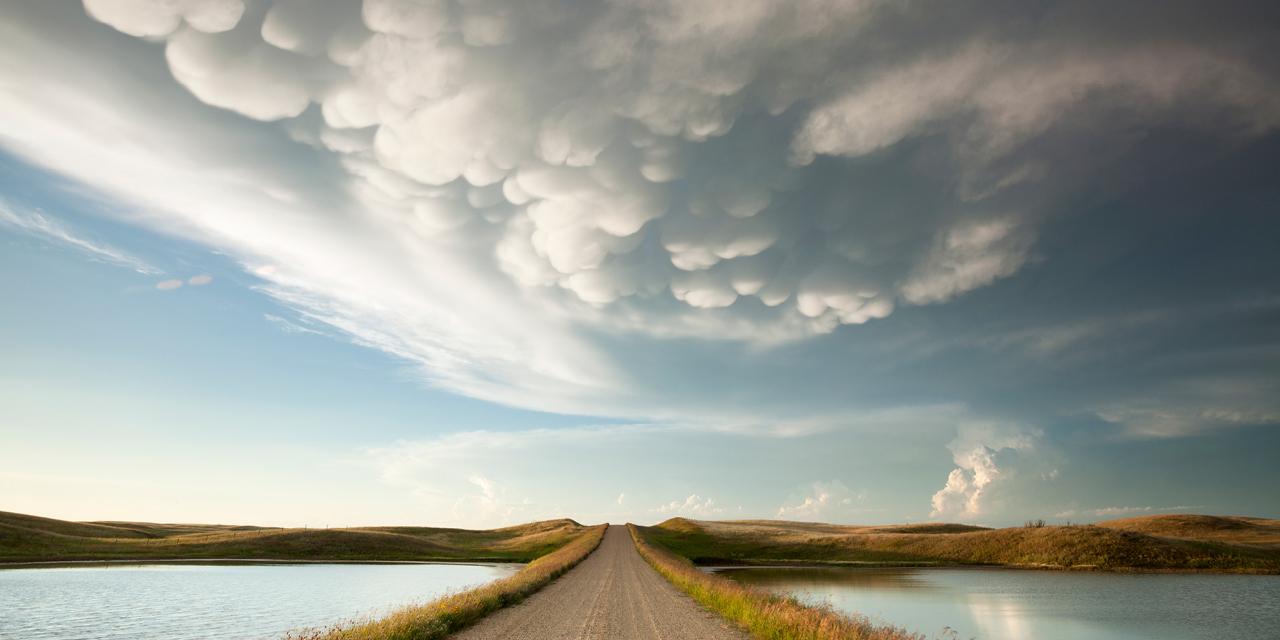Hosted by the Calvin Institute of Christian Worship, the symposium featured sorrowful yet hauntingly beautiful music that flowed through and filled the Covenant Fine Arts Center during the event’s daily worship services. The symposium sought to offer – through preaching, song, seminars, and vesper services – a chance for prayer-filled respite and learning for worship leaders, pastors, musicians, liturgists, missionaries, and others attending the gathering in Grand Rapids, Mich.
During the opening worship session, following music performed by the Grand Rapids Christian High School Symphonic Band, Thrive worship specialist and pastor Katie Ritsema Roelofs came to the podium and helped set the tone for the symposium as she offered a prayer of confession.
“This is our Father’s world,” she said, her voice trembling. Drawing the words out slowly, she went on: “More than 700 days of war in Ukraine; more than 27,000 people dead in the Middle East; some 110 million refugees displaced – this is our Father’s world!
“More mass shootings in the U.S. in 2023 than there are days in the year; 46 percent of the people in the world are in poverty; this past year was 1.4 percent warmer [than the year before] and 24 species went extinct. . . . This is our Father’s world! . . .”
Near the end of this prayer, she petitioned: “O Lord, have mercy. . . .We are here in this place to lift our hearts and voices to you, God. . . . Forgive us for our sins of pride and selfishness. How long, O Lord, how long? Please hear our prayers.”
This year the symposium focused on the Old Testament book of Ezekiel – a challenging text full of visions in which, among other things, God calls forth judgment on his people in Jerusalem.
Mark Labberton, emeritus professor of preaching at Fuller Theological Seminary, presented the opening sermon, titled “The Prophetic Call and First Messages,” based on the Ezekiel 1-2.
“Ezekiel has an encounter with the God of all things,” preached Labberton. “As the book opens, Ezekiel sits by an irrigation ditch in Babylon. He is silent and prostrate before God. He is in awe and wonder as he senses the weight and substance of this God of a different order. . . . What happens here is a raw experience of the righteousness and glory of the Lord who lays claim to us.”
Ezekiel has a vision showing that God “is no longer in the temple but is in exile with the Israelites in Babylon.” Labberton continued. “The prophecies he will give will be hard and painful. He will not be giving one-off sermons.”
It is an amazing and remarkable God who appears to Ezekiel, Labberton said. But, turning to today, he commented: “This God who appeared to Ezekiel has become so diminished in our world. He’s seen by so many as being little more than a man happens to be. This is a God of my political party, of my social agenda. This is a God who votes like us. . . . If you are not like me, you don’t belong in the Promised Land.”
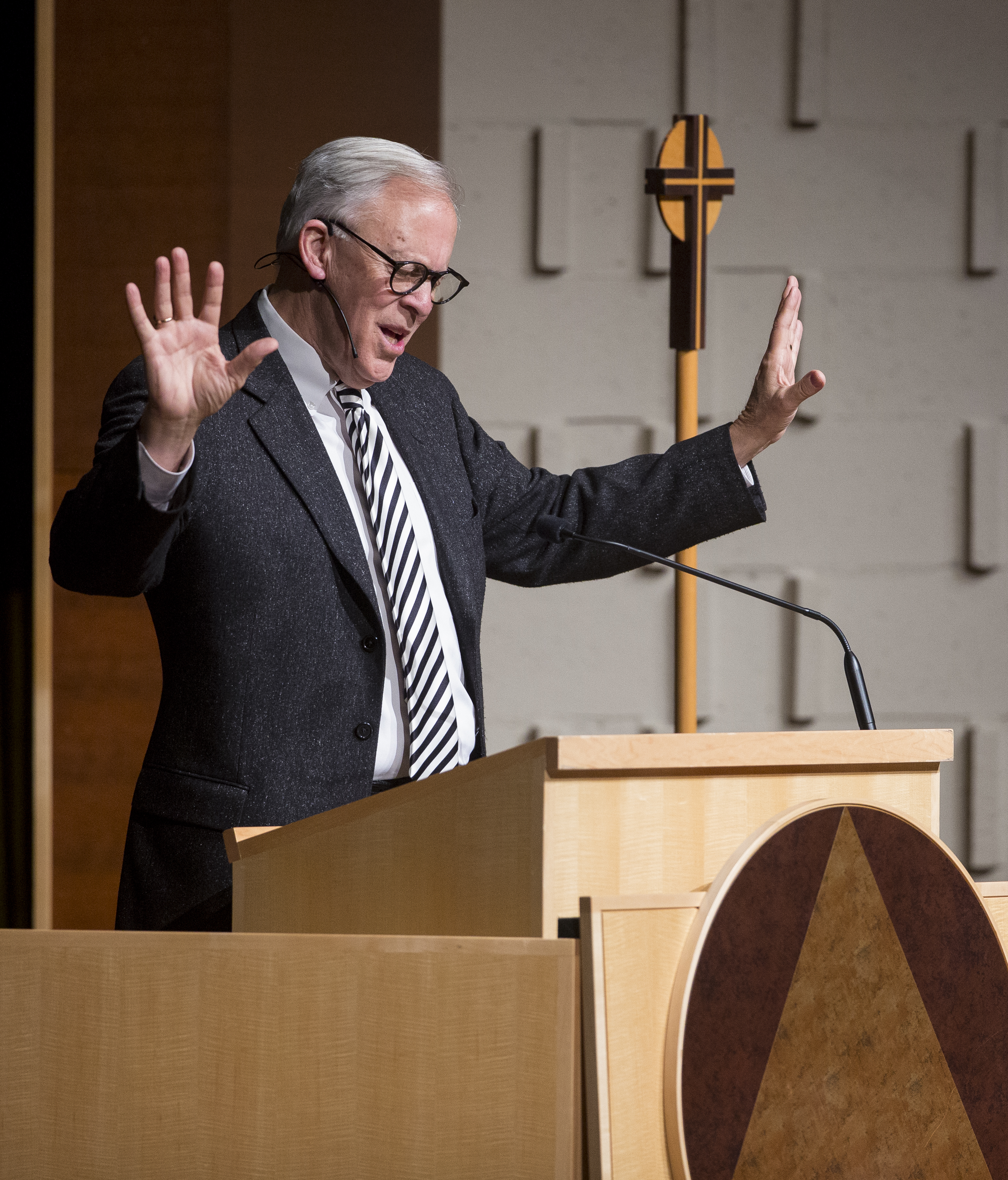
Mark Labberton
The symposium participants also attended many seminars, performances, and workshops, including ones titled “Being Worship Communities Committed to Peace”; “Music and Prayer in Worship”; “Celtic Psalms”; and “Rethinking the Church: A Crossroads for the Church in the U.S. and around the World.”
It was a time to refresh and relax and yet also to delve into the evolving world of prayer, music, preaching, sacred storytelling, and church growth. Highlighting the event, however, were the worship services.
Anne Zaki, an assistant professor in the department of practical theology at the Evangelical Theological Seminary in Cairo, Egypt, preached at a service on Feb. 8. She spoke of Ezekiel’s second vision as described in chapters 8-11, in which God takes the prophet to Jerusalem and shows him the idolatry being practiced in the temple.
“Ezekiel sees that sin runs so deep among the people of God. God will not spare them. . . . This is a God who will not be taken for granted,” said Zaki.
“This is a sobering vision for us. Have we also broken from God, and are we doing despicable things? Has not our world been filled with enough violence, injustice, and bloodshed? Haven’t we all fallen short of the glory of God?”
In the book of Ezekiel, said Zaki, the text focuses on God’s people who have fallen away into sin, especially the sin of taking comfort, pleasure, and meaning from worldly idols, from things that fill God with jealousy and lead the Lord to call down destruction on the people he has claimed as his own. We see a banished people suffering violent bloodshed and despair and death.
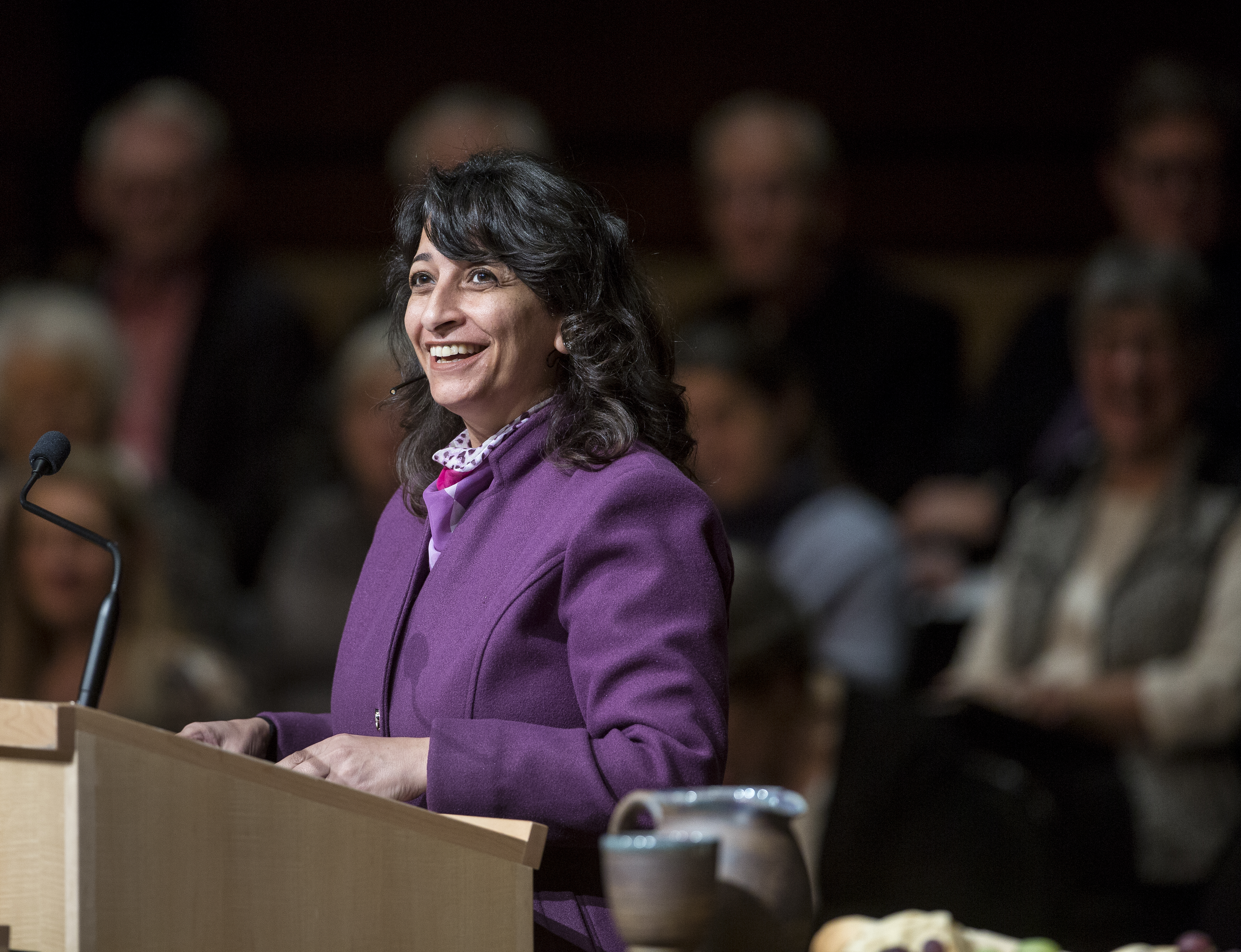
Anne Zaki
But there is also restoration, as described in Ezekiel 37, in which God shows Ezekiel a valley of dry bones. At God’s command those bones come back to life, noted another preacher, Brianna Parker, a faith leader and scholar who serves as CEO of Black Millennial Café, a consulting practice and data resource center for Black churches.
In her sermon, Parker opened by recounting the ways in which the COVID-19 pandemic broke much of today’s church apart, sending church members online to view services or to stop going to church altogether. Today, as she surveys the state of the church, Parker said, she sees empty pews, financial challenges, and church leaders feeling despair over the loss of members as well as confusion over what the future holds.
“We are mourning and wonder if things will ever be the same, ” said Parker. “We look back to a time when we thought, ‘If it isn’t broken, don’t fix it.’ I ask, ‘Do you believe God is still concerned about people engaged in worship?’”
Answering her own question, she turned to Ezekiel and the valley of dry bones – symbolizing the exiled Israelite nation, broken, and scattered by the God whose people had turned their backs on him.
But God wanted to show “Ezekiel that all things are possible with God,” said Parker. “God asked, ‘Can these bones live?’ and then told Ezekiel to prophesy to the bones . . . and the bones came back together in their proper places. They knew where to go and how to line up.”
Finishing her sermon, Parker said that just as God was able to turn the valley of bones back into living, breathing people, God in his power can bring vitality and stability back to the church of 2024.
“We need to remember that nothing can penetrate the spirit of people without the hand of God to break in and restore our worship experiences. . . . We need to realize that God is coming to rescue you for his name’s sake because he is the living God.”
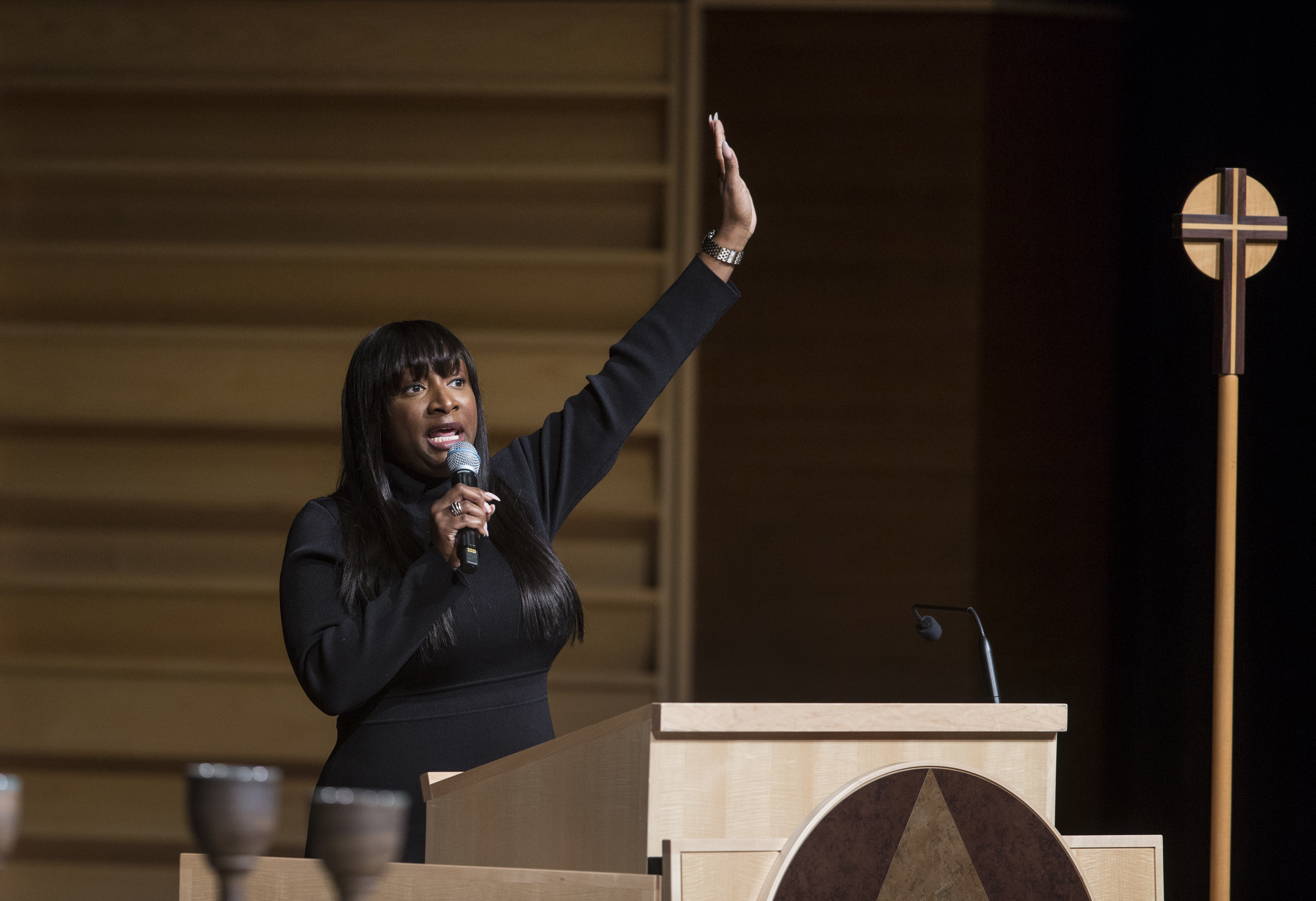
Brianna Parker
During the symposium’s final worship service, the Capella concert choir of Calvin University, led by David Cherwien and Pearl Shangkuan, performed a rendition of “Great Is Thy Faithfulness,” followed by a sermon from Jared E. Alcántara, professor of preaching at Baylor University.
In this closing sermon, titled “Ezekiel 47: A Trickle of Ever-Growing Hope,” Alcántara sought to weave together the more difficult aspects of the Old Testament book to show that at the end there is a movement toward hope, toward the reconstitution and fragile transformation of God’s people.
In chapter 47, Ezekiel is brought back to Jerusalem, where a man shows him a reborn garden of a world, a world measured out and giving all of the people, including foreigners, a place to live as an inheritance.
“We see that a new creation has come; the new is here,” said Alcántara. “In this we can see that our churches must have more hope and less enmity. . . . In the 21st century we should have less xenophobia and more equality.”
After the sermon, Mary Hulst, chaplain of Calvin University, provided a capstone prayer of lament to an event that kept the many trials of today’s world – a world sorely in need of God’s guidance and love – in the forefront of people’s minds.
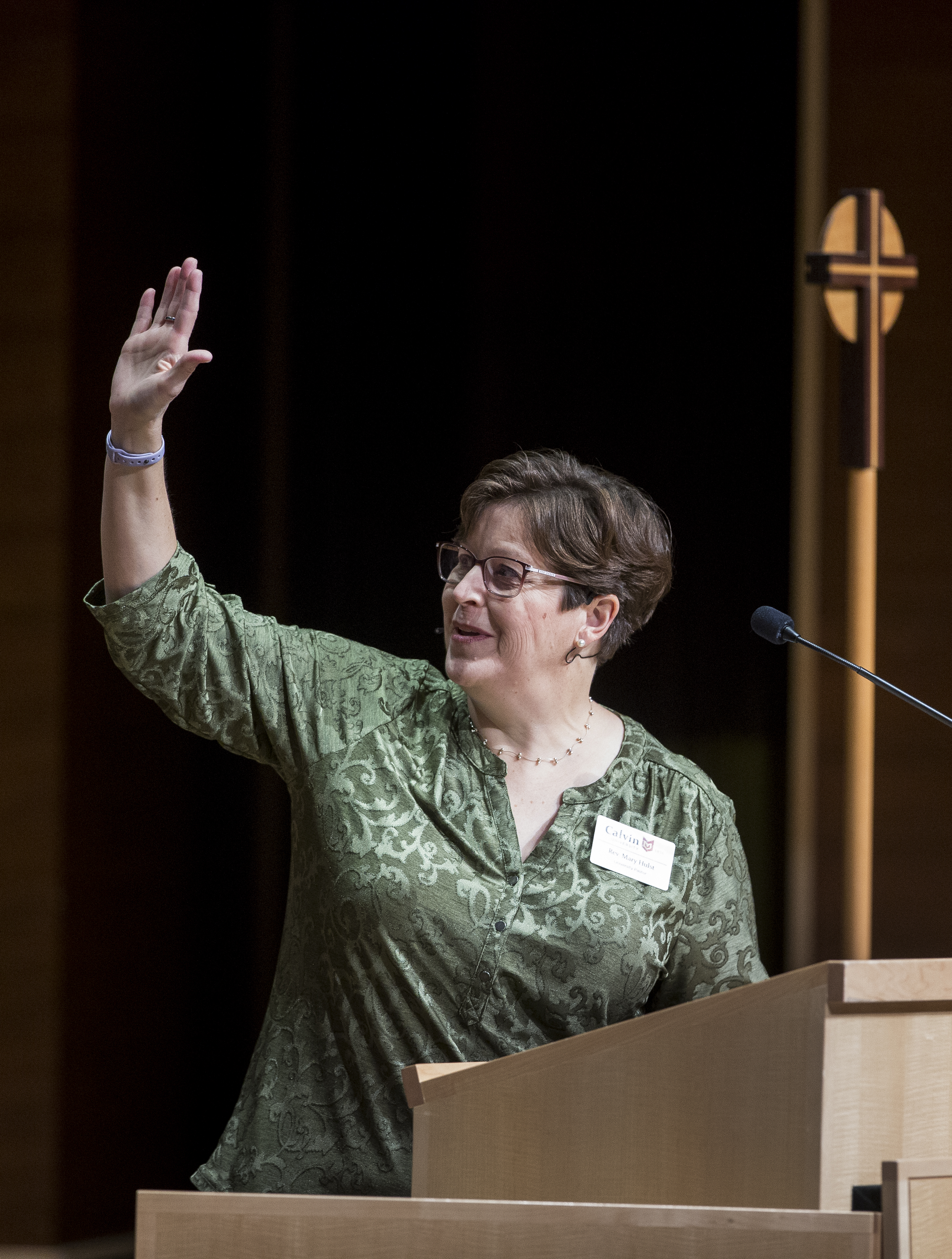
Mary Hulst
“Great God, you revealed yourself to Ezekiel with visions wild and strange . . .” she said. “Ezekiel was called to stand in a desperate situation. He was asked to speak the word of God whether the people listened or not. He was asked to be a watchman on the wall. He had the ministry of a truthteller. He was asked to tear down and uproot, from judgment to salvation, from despair to hope. . . . But what does hope look like when we are exiles and so far from home in the 21st century?”
Sweeping her eyes across the packed crowd in the Fine Arts Center, she wrapped up: “Help us, Lord, to remember that everyone is part of your inheritance. Hope looks like care for God’s creation and the redemption that can come for your people.”
—Chris Meehan, CRC Communications

